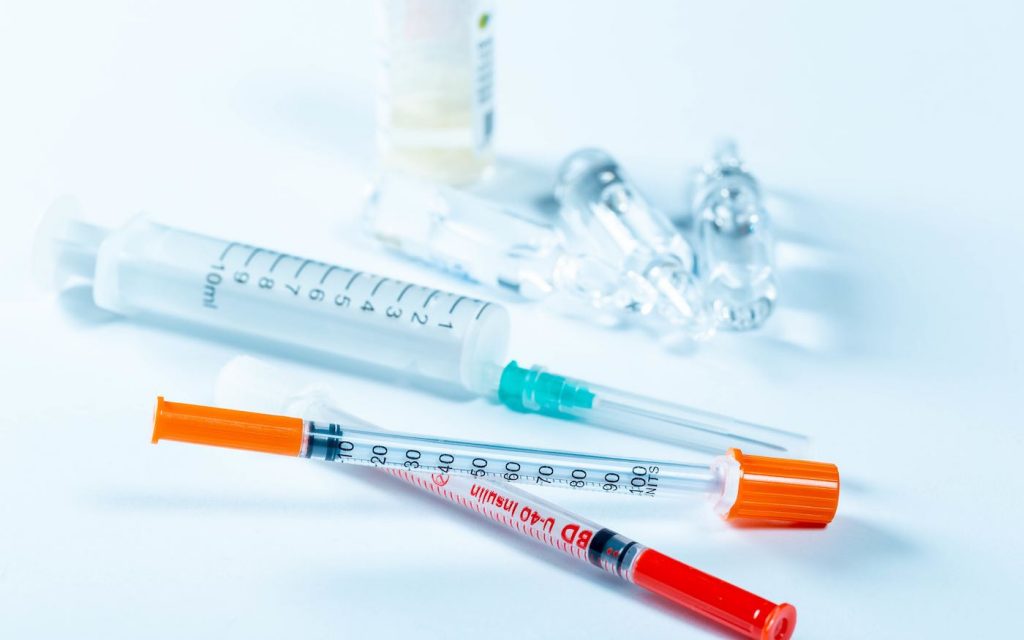
Regular insulin and a syringe from ampoules and vials of medicines
Stem cells are being used more and more widely in treatments across the spectrum of medicine, but a recent breakthrough from Shanghai promises the best may still be yet to come.
A senior who had suffered from type-2 diabetes for 25 years hasn’t taken insulin for 33 months after he received a regenerative islet cell transplantation.
Diabetes, particularly type 2—the form that can develop in one’s life because of poor diet and lifestyle choices—is one of the most prevalent non-communicable diseases on Earth.
China in particular is one of the world’s diabetes hotspots, with 140 million people unable to make their own insulin, and so suffer from kidney problems, blindness, amputation, and cardiovascular problems.
But this new breakthrough, coming after 10 years of research and testing, may change this paradigm of sickness forever.
Yin Hao, a leading researcher on the team and director of Shanghai Changzheng Hospital’s Organ Transplant Center, said they took the patient’s own peripheral blood mononuclear cells and used existing methods to reprogram them back into pluripotent stem cells for injection into the pancreas.
“Our technology has matured and it has pushed boundaries in the field of regenerative medicine for the treatment of diabetes,” Yin, told China Daily whose team conducted the research with scientists from the Center for Molecular Cell Science at the Chinese Academy of Sciences.
Existing transplant treatments for type-2 diabetes are hindered by a lack of donor cells, and the complexity of pancreatic islet cell isolation technology.
Pancreatic islet cells are the major insulin-producing cells in the body, and the patients’ were almost completely inhibited. He relied on multiple insulin injections daily in addition to a kidney transplant.
After receiving the manufactured stem cells in 2021, he was weened off of external insulin over 11 weeks, after which his disease seemed to be largely gone.
“Follow-up examinations showed that the patient’s pancreatic islet function was effectively restored, and his renal function was within normal range,” Yin said. “Such results suggested that the treatment can avoid the progression of diabetic complications.”The paper was published in Cell Discovery on April 30th, and future studies, the authors wrote, should explore the pharmacology of drugs that might provide off-the-shelf equivalents for islet transplantation.59-year-old Man Who Had Type 2 Diabetes for 25 Years is Cured by Stem Cells
2024-05-17T12:24:00+05:30
